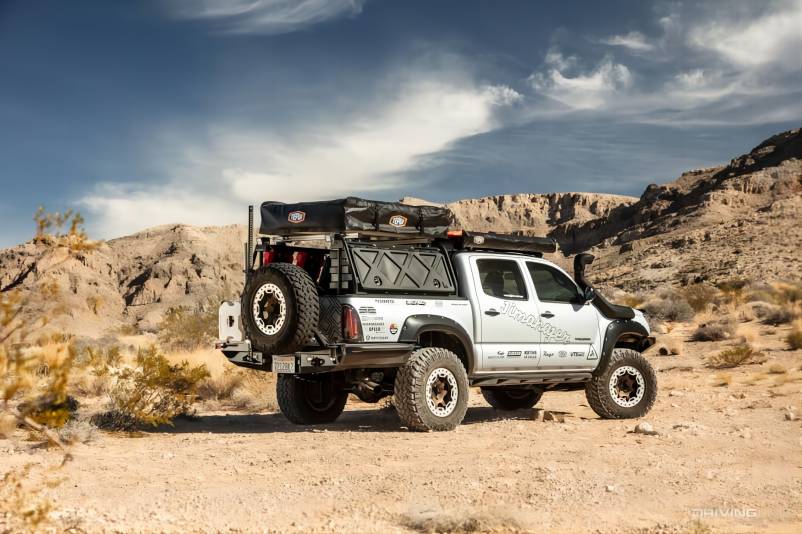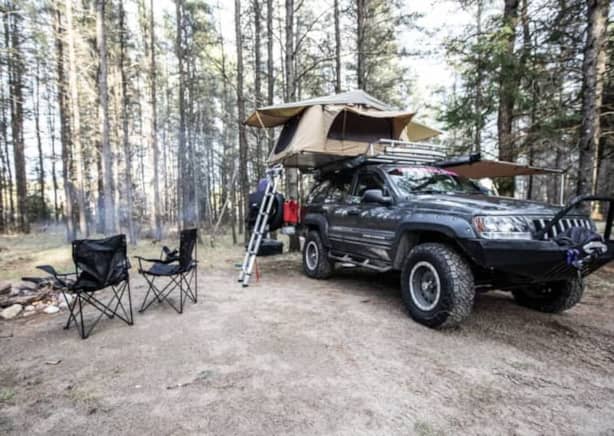Overlanding vs. Off-Roading: Understanding the Distinctions
While "overlanding" and "off-roading" are often used interchangeably, they are distinct activities with unique characteristics. In this comprehensive guide, we'll explore the differences between these two seemingly similar but fundamentally different outdoor pursuits.
Introduction
The casual observer might find it easy to confuse overlanding with off-roading, as both involve mechanized vehicles exploring rugged terrain. However, delving deeper reveals significant distinctions between these activities, including their purposes and goals.
In this article, we aim to clarify these differences, providing you with a comprehensive understanding of overlanding and off-roading.
Starting from the Top
At first glance, overlanding and off-roading may appear similar, given their shared emphasis on exploring challenging landscapes with vehicles designed for such terrain. However, their underlying purposes and goals set them apart.
To grasp these differences, it's crucial to recognize that while both activities involve nature exploration, they each have distinct identities.
What is Overlanding?
Overlanding is more than a combination of road trips and camping; it's a self-reliant journey of resilience and self-sufficiency to remote areas where the journey itself is the primary focus. Accommodation is typically in the form of camping, and the experience of the journey takes precedence over the destination.
Originating from the historical need to transport humans and livestock over land, overlanding has evolved into a modern movement rooted in self-sufficient exploration. While it has a long history, it has only recently gained mainstream recognition.
Overlanding involves using mechanized vehicles and modern equipment to enable people to explore the world in a unique way. The central tenet of overlanding is that the journey is the destination.
But What Does This Mean?
When you embark on an overland adventure, you commit to a vehicle-supported, self-reliant exploration of natural and uncharted landscapes, often spanning from a few days to several years. Your vehicle serves as both transport and living quarters, emphasizing the journey rather than reaching a specific endpoint.
In contrast, traditional camping or road trips prioritize arriving at a predefined destination, with the journey being secondary. Overlanding, on the other hand, centers on savoring every moment of the expedition.
Overlanding is essentially a camping concept, requiring you to camp en route with minimal amenities. You won't find the luxuries of private campsites; instead, you'll rely on the resources you carry for sustenance and comfort.
In essence, overlanding is a self-sufficient journey that focuses primarily on the experience of the journey itself.
What is Off-Roading?
Off-roading shares the element of driving mechanized vehicles across natural terrain with overlapping, but is driven by a different purpose. Off-roading enthusiasts thrive on conquering challenging terrains, regardless of whether they're muddy, rocky, sandy, or treacherous in any way.
For off-roaders, a path with no established road is the ideal route. Off-roading involves driving over unpaved or rough ground and is typically a recreational activity aimed at personal satisfaction, such as racing or competitive trials.
Activities within off-roading encompass dune bashing, desert racing, rock racing, mudding, rock crawling, and various trials and competitions. These activities take place in diverse and often challenging environments.
Off-roading vehicles are specialized for these demanding conditions and have a long history of modification and adaptation, dating back to the early 1900s with the invention of Kegresse trucks.
Differences Between Overlanding and Off-Roading
The distinctions between overlanding and off-roading become evident when you examine various aspects of these activities:
1. Purpose:
2. Terrain:
3. Duration:
4. Vehicle:
5. Gear:
Since off-roading focuses on putting your vehicle through punishing road and weather conditions, the bulk of the kits that an off-roader takes on an off-roading trip are primarily to help them get to their destination safely. Some of these gears include:

Choosing the Right Activity for You
Ultimately, the choice between overlanding and off-roading depends on your interests, available time, experience level, budget, and the purpose of your adventure. Both activities offer unique ways to connect with nature and create lasting memories. Consider your preferences and circumstances when making your decision.
